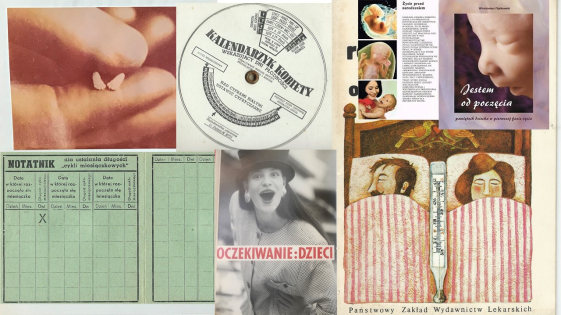End of the project: 29 April 2023.
Visit Cathorep Seminars for recordings & zoom links
25.01.2024 Our final publication: Agnieszka Kościańska, Productive Sexological Self-Censorship in Late Communist Poland between State and Church. Journal of the History of Sexuality 33, no. 1 (2024): 12-32.
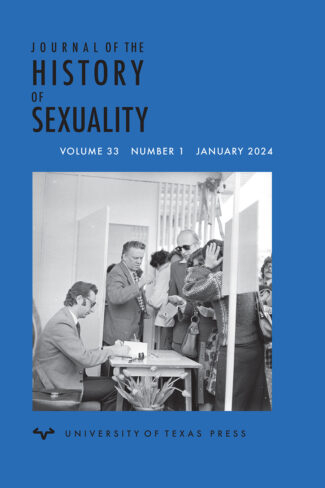
Every publication in state socialist Poland, including sexological material, was inspected by a censor to ensure it adhered to socialist doctrine and morality. Censorship is generally understood as a tool of totalitarian oppression blocking the exchange of knowledge and ideas. The powerful Polish Catholic hierarchy has been considered an additional factor, collaborating with the Communist Party to silence progressive sexual discourse.
Through analysis of sexological and sex educational writings on homosexuality and birth control, I argue for a more nuanced picture of censoring practices, by asking: How was the censorship practiced? What kind of writing strategies did it produce? Who conducted the censorship? What happened to those who decided not to become involved in the complex struggle over sexuality between Church and State? And, finally, what are the long-term consequences of practicing censorship? Based on archival research and in-depth interviews with sexologists and sex educators active during the late state-socialist period, I explore the personal and collective strategies that weakened but also strengthened censorship. Sex experts employed many writing strategies to “trick” the censors, yet at the same time practiced self-censorship, gauging what would be blocked by censors or incite a protest from the Church. They also disciplined colleagues attempting to be more open, believing such openness could be counterproductive to past and future achievements in the development of sex education and therapy in Poland. As a result, censorship appeared to be surprisingly productive, generating a particular style of writing that encouraged the public to read between the lines. However, in the long run, it produced an inability to speak openly about (liberated) sexuality in Poland.
20.10.2023 Agnieszka Kościańska spoke about our research during Health Feminism, Reproductive Knowledge and Women’s Activism Across Europe in the long 20th Century (19-21 October 2023, University of Konstanz)
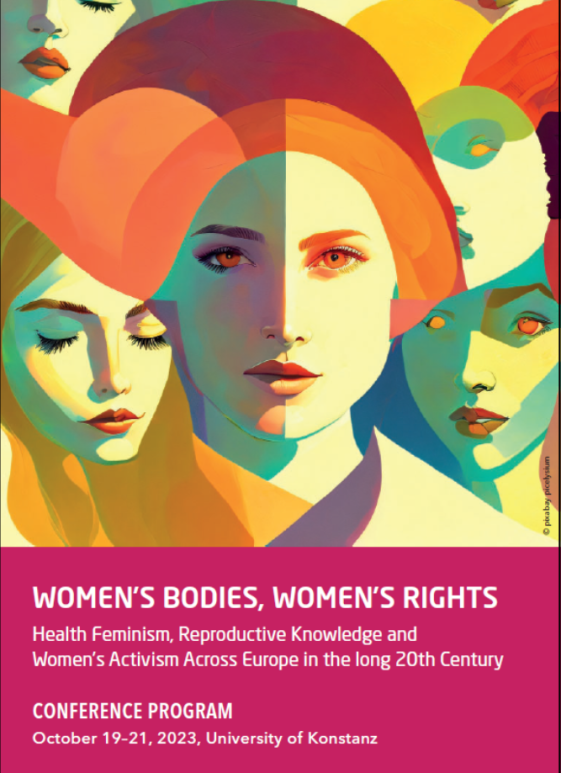
Agnieszka Kościańska, Modern catholic women? Polish religious activism of the 1960s
Abstract: “For many people, birth control has stopped being something permitted under special circumstances, and has started to become a necessity,” argued Anna Morawska, one of the most important figures in Catholic intelligentsia, in 1962. Morawska also reported for the Polish Catholic press during the Second Vatican Council. This paper analyzes her writings and transnational connections to reconstruct the diversity of Polish Catholic approaches to gender, sexuality and reproduction beyond the usual narrative of conservative Polish Catholicism embodied in the teaching of John Paul II, and later in the war on “gender ideology”.
30.05.2023 New publication: Ignaciuk, Agata and Natalia Jarska. "Unawareness and Expertise: Acquiring Knowledge about Sexuality in Postwar Poland." Journal of the History of Sexuality, vol. 32 no. 2, 2023, p. 121-143. Project MUSE muse.jhu.edu/article/897310.
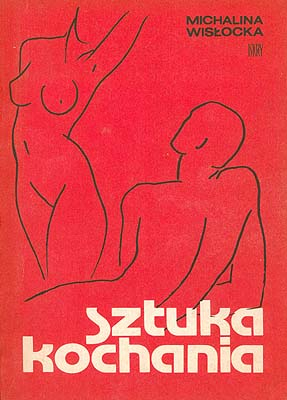
In an interview conducted in 2018, Elżbieta, a female laboratory technician born in 1961 and living in the large industrial city of Łódź in central Poland, narrated her experience of sex education: "When I was fourteen or fifteen the famous book Sztuka kochania [Art of love] was published. And during winter holidays, it so happened that the secondary school pupils did a work placement at a press, and each of us got a copy. So the four of us [who did the placement], two boys, a girl, and myself, had the book, and we lent it out as well. It had influence. Of course, our parents did not know what kind of a book it was. We considered it to be forbidden fruit, because we were still underaged."
22.05.2023 British Association for Slavonic & East European Studies, Polish Studies Article Prize 2023: “Marriage, Gender and Demographic Change: Managing Fertility in State-Socialist Poland” (Slavic Review, 81 (1), 2022: 142-162) by our team members Natalia Jarska and Agata Ignaciuk received an honourable mention.
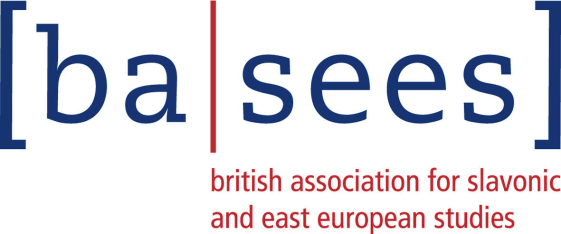
The Jury commended the article for generating new insights into the fertility management practices in socialist Poland by skillfully analysing a vast array of primary sources.
Congratulations to Natalia and Agata! Read the article here
19.04.2023. New publication: Agata Ignaciuk, Agnieszka Kościańska, Regendering Childbirth: Catholicism, Medical Activism, and Birth Preparation in Post-War Poland, Journal of the History of Medicine and Allied Sciences, 2023, access accepted manuscript.
This article examines the work of the gynecologist Włodzimierz Fijałkowski, the key promoter of preparation for childbirth in Communist and early democratic Poland. From the late 1950s until the 1990s, Fijałkowski developed a childbirth preparation training protocol that served as an inspiration for childbirth preparation schools across the country. Through analysis of Fijałkowski’s publications in medical journals, books aimed at both professional and lay readers, visual aids for childbirth training, and archival material, we demonstrate that a specific vision of gender roles and relationships lay at the core of Fijałkowski’s psychoprophylactic project. This vision represented a re-definition and re-essentialization of femininity and masculinity, and motherhood and fatherhood, while simultaneously advocating for radical change in the relationship between women in labor and obstetric professionals. Fijałkowski’s ideas and advocacy were intimately connected with a humanization of the embryo and fetus from the earliest stages of pregnancy, and we show how his work became an important transmission medium for the gradual mainstreaming of anti-abortion ideas within public discourse in late-Communist Poland.
15.04.2023. Our team participated in European Social Science History Conference, Gothenburg, 12-15 April 2023.
Agata Ignaciuk organized a panel entilted Catholicism, Gender and Anti-abortion Activism in Europe (1970s-Present) which was moderated by Agnieszka Kościańska. Sylwia Kuzma-Markowska presented a paper entitled: “The Right to Life” Behind the Iron Curtain: the Polish Anti-Abortion Movement, the Catholic Church, and the Communist State in the 1970s and 1980s.
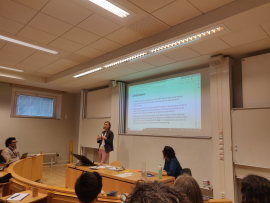
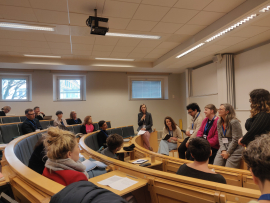
15.02.2023 Our new publication: Natalia Jarska & Sylwia Kuźma-Markowska. 2023. Explaining the Calendar: The Catholic Church and Family Planning in Poland, 1930–1957. The Historical Journal, 1-23. https://doi.org/10.1017/S0018246X23000018 (open access)
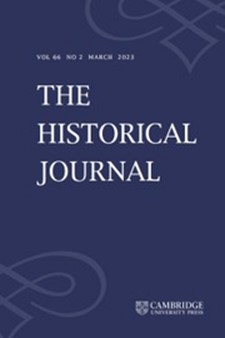
This article explores continuities and discontinuities in Polish Catholic discourses on family planning across a time span that tends to be divided in the historiography on Poland and political history in general. The period we analyse begins in 1930, with the pivotal encyclical Casti connubii defining church doctrine on contraception, and ends with the legalization of abortion in 1956, and a state-sponsored family planning campaign the following year. In order to reconstruct Catholic teachings on marriage and family planning we examine advice publications that received official church approval, paying particular attention to their gendered dimensions, the emphasis placed on marriage, and the ‘calendar’ method. Although our research includes three politically and socially distinct periods, we argue that the content of Catholic teachings on family planning in Poland was consistent throughout. We also show that, although there were some distinct national characteristics, the Polish Catholic discourse on family planning resembled to a great extent the developments in other countries, particularly in regard to visions of marriage and sexuality. As we delineate, by engaging in the discussion on family planning, Catholic authors acted as active constructors of modernity, construed in both periods in relation to science and nationalism.
16.12.2022 Our new publication: Jędrzej Burszta, Religious individualism and how young religious LGBT+ persons approach parenthood in Poland, Lud, vol. 106, pp. 208–232. https://doi.org/10.12775/lud106.2022.08 (open access)
The article is based on research material consisting of ethnographic interviews with young non-normative Poles practising as religious members of the Roman Catholic Church. The author analyses their life narratives, discussing how they are struggling to integrate their religious beliefs with their non-normative gender and sexuality, gradually distancing themselves from the institutional Church and sensing that they a becoming “a minority within a minority”. In the second part of the article, the author focuses on the non-normative religious Poles’ approach to reproduction, family and life plans.
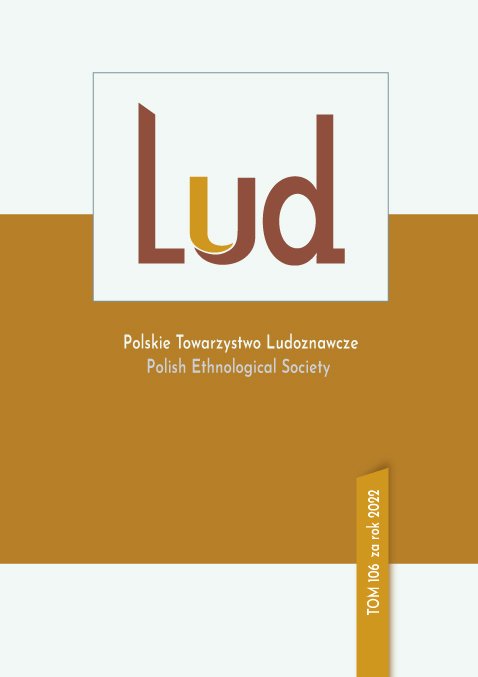
1 and 14.12.2022 Join us for our preseantation during the roundtables of the AHRC Research Network Gender Wars: East and South
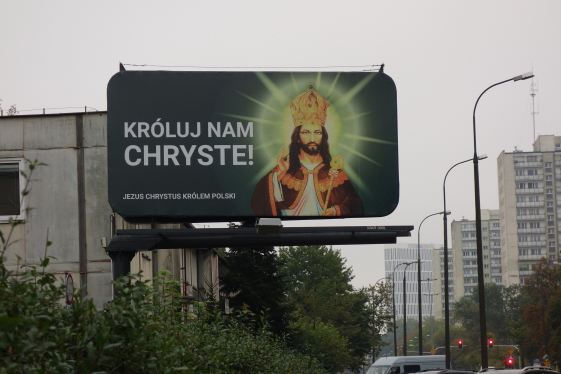
Roundtable Liberal practices and conservative global knowledge flows (watch the recording)
1 December 2022, online [https://uw-edu-pl.zoom.us/j/95077882591]
4 pm – 6 pm in Warsaw, 3 pm – 5 pm in Oxford, 12 noon – 2 pm in Brasília
Speakers
Cathorep team: Agata Ignaciuk (University of Granada), Natalia Jarska (Polish Academy of Sciences), Sylwia Kuźma-Markowska (University of Warsaw), Agnieszka Kosiorowska (University of Warsaw), Agnieszka Kościańska (University of Warsaw), Natalia Pomian (University of Warsaw)
Discussants
Flávia Biroli (University of Brasília) and other Gender Wars key network members
During this roundtable we will show the results of our ethnographic and historical research on sexuality, birth control and Catholicism in Poland. On the one hand, Polish Catholics both historically and today negotiate their sexual reproductive practices in ways which go beyond the Catholic doctrine. On the other hand, Polish Catholics actively participate in global movements that promote more conservative sexual and reproductive choices and disseminate anti-abortion discourses. This contributes to the complex picture of Catholicism, sexuality and reproduction in Poland and the world.
We will continue this conversation in person on 14 December in Warsaw (Żurawia 4, room 108), 10:30 am [in Polish].
08.12.2022, 15:00, Joanna Krotofil, The missing maternal body in the narratives of young Catholic and Muslim mothers in Poland (co-authors: Dagmara Mętel and Dorota Wójciak)
Link to the meeting: https://uw-edu-pl.zoom.us/j/97761973633
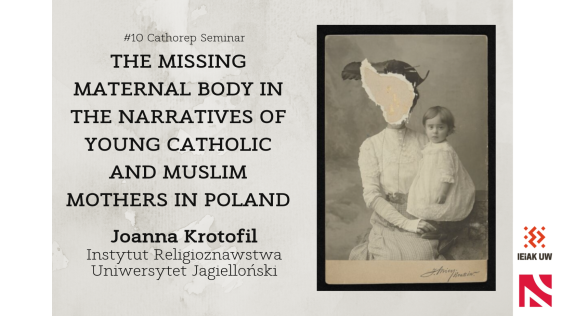
Abstract: In the introduction to the edited volume “Philosophical Inquiries into Pregnancy, Childbirth and Mothering”, Lintott and Sander-Staudt note that the “hidden mother” – a widespread practice in 19th-century infant photography – is a fitting metaphor for many contemporary projects on motherhood and mothering, where the maternal subjectivity is downplayed. In this presentation we will argue that in Poland, where Catholicism remains the dominant religion, pregnancy and birth are highly medicalised (Oleś-Bińczyk; Mazurek) and feminists are reluctant to notice and engage with mothers (Graff), the embodied nature of the transition to motherhood is erased from public discourses and from the mother’s own stories. The mother as an embodied subject is missing in public and private space. We will analyse the fragmentarily narrated or entirely missing bodily experiences of pregnancy, birth and postpartum in mothers’ stories revealing the power of religious and medical discourses and practices to produce silence. Looking closely at these silences and omissions, we will also trace the instances when women navigate religious and medical practices in a way that allows them to reclaim their missing maternal embodied subjectivity. We embed our discussion in the context of debates in feminist circles on the importance of a matricentric perspective.
20.10.2022 Agnieszka Kościańska talked about our research during the launch of the new AHRC Research Network Gender Wars: East and South at the University of Oxford. More
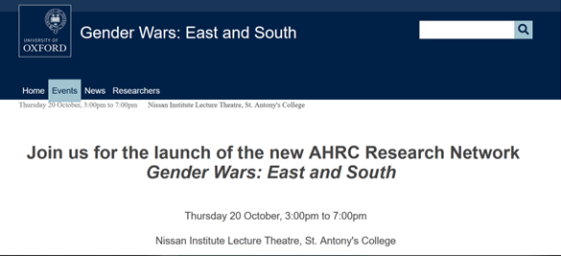
13-14.10.2022 Cathorep team participated in 54th Association for Slavic, East European, and Eurasian Studies Annual Convention. During panel Religion, Intimacy and Precarity: Polish Catholic Narratives of (Non-)reproduction (1980s-Present) members presented following papers:
Sylwia Kuźma-Markowska and Agaata Ignaciuk, "Constructing Precarious Bodies: Representations of the Embryo and Fetus in Late State-socialist Poland (1980s)"
Natalia Pomian, "Who Can Afford Having a Child?: Catholic Methods of Infertility Treatments versus Conventional Medicine in Contemporary Poland"
Jędrzej Burszta, "Contemporary Polish LGBT+ Catholics and the Queer Discourse on Family and Reproduction"
Agnieszka Kosiorowska, "Constructing the Difference: Catholicism and Reproduction in a Polish Migrant Community in Paris, 1980-present".
17.09.2022 Our articles published in the special issue of Journal of Religious History on Catholicism, Reproduction and Modern Medicine:
Catholic Intimacies: Negotiating Contraception in Late Communist Poland
Agnieszka Kościańska, Agata Ignaciuk, Agata Chełstowska (open access)
Anti-abortion Activism in Poland and the Republic of Ireland c.1970s–1990s
Sylwia Kuźma-Markowska, Laura Kelly (open access)
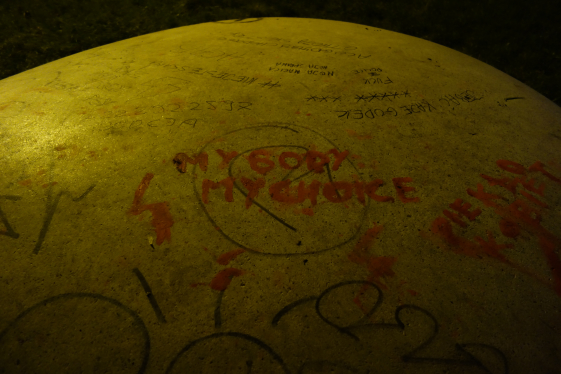
26.07.2022 Our new open access publication: Natalia Jarska, Agata Ignaciuk (2022). Marriage, Gender and Demographic Change: Managing Fertility in State-Socialist Poland. Slavic Review, 81(1), 142-162. doi:10.1017/slr.2022.85
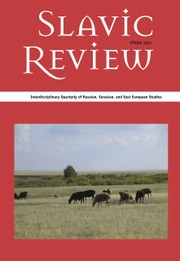
This paper explores fertility management practices in state-socialist Poland and investigates post-war demographic change through the lenses of gender and modernization. Using personal narratives from oral histories and memoirs, we examine reproductive decision-making processes from the 1940s to the 1980s, focusing on motivations, norms, and the means employed to achieve desired family size. Our analysis reveals the ambiguous nature of both modernization and women's emancipation in regard to reproduction. We argue that acceptance of the two-child model and the need to effectively manage fertility increased in Poland through the second half of the twentieth century, but was highly dependent on levels of spousal communication and equality. Personal narratives demonstrate how social pressure shaped women's reproductive choices, and how at times these choices were considerably limited by male violence and domination. As our analysis shows, gender relations in marriage and the modernization of fertility management in state-socialist Poland were deeply interrelated.
15-17.06.2022 Agnieszka Kościańska talked about our research during Eastern Europe's 20th Century Today (Annual Conference of the Imre Kertész Kolleg)
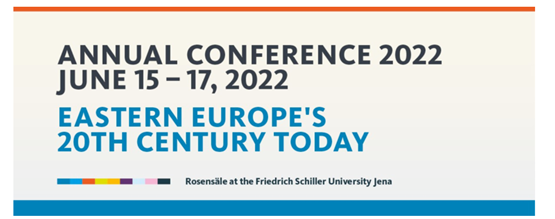
Roundtable: Historizing abortion, understanding the Cold War biopower
Organizers: Agata Ignaciuk, Agnieszka Kościańska
Panellists: Corina Doboș, Melissa Feinberg, Emily R. Gioielli, Yuliya Hilevych, Agata Ignaciuk, Agnieszka Kościańska (moderator)
In the last few years, we have witnessed the global backlash against women’s reproductive rights as well the rise of sexual and gender conservatism which, despite the pandemic, provoked thousands to protest, demonstrating that issues such as abortion are central to how we envision the state. In the East Central European context, restrictions on reproductive rights are often perceived within the global public debate as connected to backwardness or underdevelopment. However, on the Soviet-influenced side of the Iron Curtain, abortion outside of medical or criminal indications was legalised earlier than in the West. The key difference in the legalisation processes in East and West was the origin of the demand for legal abortion.
In many Western countries, social movements such as the feminist movement as well as the engaged medical profession and family planning and population control activists played a key role in stimulating abortion law reforms from the bottom-up. In East Central Europe, on the other hand, the legal change initiated in 1955 in the Soviet Union was a State-driven, top-down endeavour. The intensity of the abortion law reforms across the region – and actual access to abortion services – differed considerably between countries and within each country. Nevertheless, in the decades that followed, abortion was consolidated as a relevant family planning resource in East Central Europe, a phenomenon some demographers interpreted as “abortion culture” (Stloukal 1999). This hypothesis meant the preference of women for pregnancy termination rather than prevention, often interpreted as a consequence of the lack of access to modern contraception.
Recent historiography has begun to further nuance this narrative by exploring the active stigmatisation in which communist states wrapped legal abortion (Randall 2011). Others have examined regional differences and changes in abortion policies (Kligman 1998; Ghodsee 2012; Drezgić 2016; Nakachi 2021) and practices (Hilevych 2015), and the role of new technologies in shaping the delivery of abortion services (Dudová 2012; Bogdan 2018). This roundtable brings together major experts working on gender, sexuality, and reproduction in East Central Europe. Its aim is to situate the role of abortion during the Cold War and historize contemporary abortion debates, showing how they aquired their current central status. It will address the following questions: What are the current implications of abortion’s strong relationship to countries’ and the region’s communist past? How is this past used in current abortion debates? How useful is the notion of “rights” applied to East Central Europe and Soviet abortion history? How does the study of the history of abortion and abortion debates help us understand today’s backlash against women’s rights?
09-11.06.2022 A member of our team, Agnieszka Kosiorowska, took part in the conference The End of “Freedom” in Central and Eastern Europe? Addressing the Challenges of an Illiberal Turn, organized by Andrássy Universität in Budapest. She presented a paper entitled "Too bad, hell it is!" Catholic women, pro-choice protests, and a “mature rebellion” against the Catholic Church.
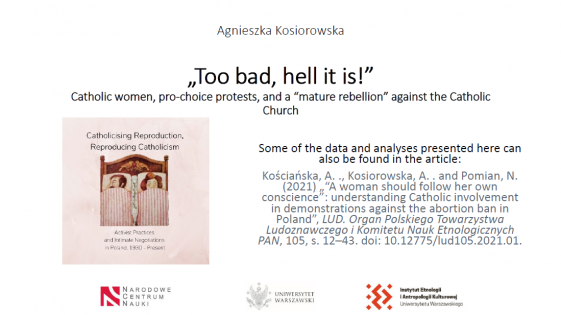
09-10.06.2022 Part of our research were presented at the conference Whose choice, whose rights? Global-historical and intersectional approaches to the emergence of reproductive rights after 1945 organized at University of Glagsow.
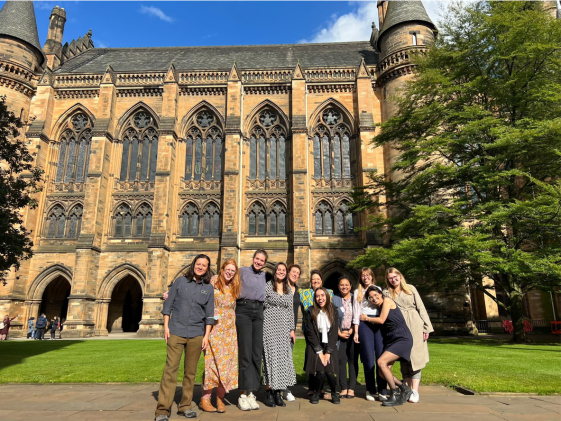
Agata Ignaciuk "Countertechnologies of care. Vacuum aspiration in communist Poland"
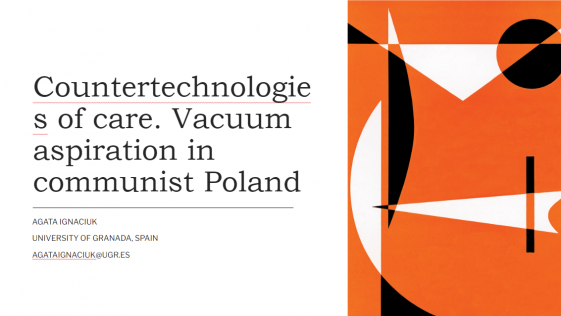
Natalia Pomian "It has this ethical approach and it’s consistent with the Church teachings. So (…) we went for it. Catholicism and infertility treatment – history of naprotechnology in Poland".
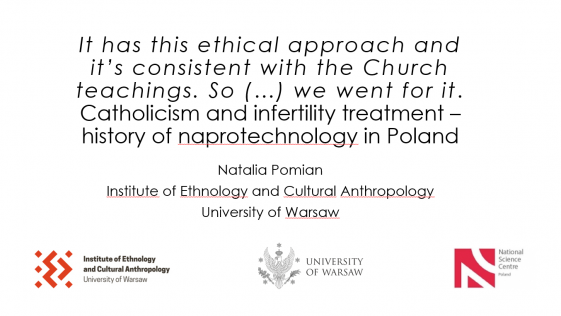
03.06.2022 Agnieszka Kościańska about our reaserch at the Political Theology Catholic Re-Visions Symposium
Polish Grassroots Theologies of Desire: From Internal Conflict to Political Action
Polish Catholics protest against the Church’s conservative approach to sexuality. Liberal traditions have been successfully silenced since John Paul II, so now they create their own theologies of desire. Will the Church listen?
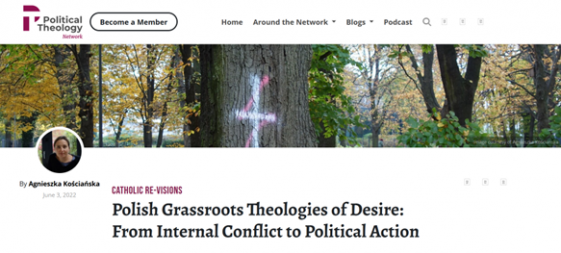
09.05.2022 Our new publications:
Natalia Jarska, Agata Ignaciuik, Premarital Sex in State-Socialist Poland: A Generational Perspective, East European Politics and Societies and Cultures (accepted manuscript available online)
Agnieszka Kościańska, Agata Ignaciuk, Agata Chełstowska, Catholic Intimacies: Negotiating Contraception in Late Communist Poland, Journal of Religious History
28-30 April 2022. Our research was presented during the 15th ISORECEA (The International Study of Religion in Eastern and Central Europe Association) conference "Drifting apart or Consolidating? Religious and Secular Organizations in Political Constellations".
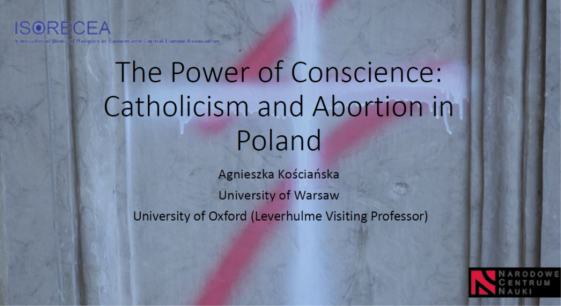
Keynote address: Agnieszka Kościańska, "The Power of Conscience: Catholicism and Abortion in Poland"
13.04.2022, 4 pm CET - Tinne Claes, “Not through masturbation, but in a permitted manner”: Catholic reinterpretations of assisted reproduction
Link: https://us02web.zoom.us/j/84494231827
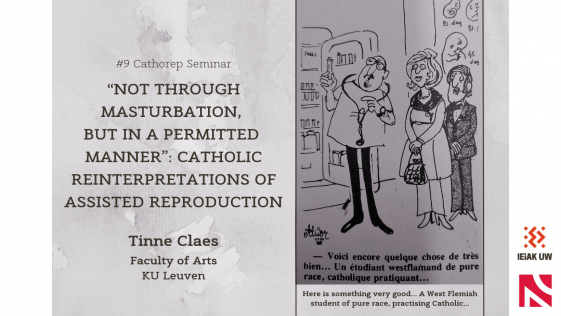
Abstract: This talk shows how Catholic doctors in Belgium, a dominantly Catholic country that was home to the largest Catholic university in Europe, creatively handled church teachings on assisted reproduction from roughly the 1940s until the 1980s. Catholic thought on reproductive medicine is mostly represented as restrictive and conservative, but this is not the full picture. On the contrary, this talk reveals that medical practitioners looked for loopholes within church teachings, creating ‘Catholic’ versions of artificial insemination and in-vitro fertilisation. In so doing, this talk adds a new dimension to recent histories of contraception, which complicate narratives of conflict between religion, science, and sexual liberation.
Bio: Tinne Claes is a postdoctoral fellow at the University of Leuven. Her research concerns the history of medicine, gender and sexuality in the nineteenth and twentieth centuries. Her current research project elucidates the diverse ways in which infertility was defined and experienced in the postwar period, questioning the privileged position of medical approaches in historical research.
31.03.2022, 16:30 CET - Marta Bucholc, The jurisprudential horizon of Polish abortion ruling of 2020: introducing religious reference by an imposition of continuity
Link: https://us02web.zoom.us/j/86733785293
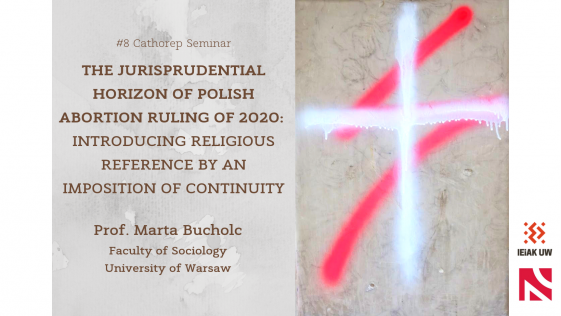
Abstract: On 22 October 2020, the Constitutional Tribunal of Poland ruled abortion due to foetal impairment unconstitutional. I will use the concept of jurisprudential horizon to explain the interplay of religious reference frames with other references framing this ruling, especially international law and human rights, but also contemporary political and social philosophy. Based on a close reading of the Tribunal’s ruling and the dissenting opinions, I will argue that the Tribunal’s decision is yet another symptom of the crisis in which the rule of law in Poland has found itself since 2015. It bears evidence to the closing of the jurisprudential horizon caused by the political change which has been taking place in Poland since 2015, consisting of the reduction of the role of international human rights debates as a reference in Polish constitutional jurisprudence. Retrospectively, the rulings can therefore be seen as a portent of Poland’s compliance issues with its international commitments in human rights matters which came up in 2021 and 2022. At the same time, I will argue that the ruling expands the horizon of constitutional jurisprudence towards religious argumentation by using a rhetorical technique which I will call “the imposition of continuity”.
Bio: Marta Bucholc is professor of sociology at the Faculty of Sociology, University of Warsaw, and associate researcher at the Centre de recherche en science politique, Université Saint-Louis Bruxelles. From 2015 through 2020 she was research professor at Käte Hamburger Centre for Advanced Studies „Law as Culture“, University of Bonn. She was visiting scholar at the universities of Jena, Cambridge, Graz and Saint-Louis Bruxelles, as well as Bronisław Geremek Fellow of the Institute of Human Sciences in Vienna. Her research focus is sociology of law and historical sociology. She is the principal investigator in a research project “National habitus formation and the process of civilization in Poland after 1989: a figurational approach” funded by Polish National Science Centre, and the Polish PI in the Volkswagen Foundation project "Towards Illiberal Constitutionalism in East Central Europe: Historical Analysis in Comparative and Transnational Perspectives”. Her research project “Using Human Rights to Change Abortion Law: Involvement Patterns and Argumentative Architectures in the Global Figuration of Human Rights (Abortion Figurations)” was retained for funding under ERC Consolidator 2021 program.
Recent publications:
Abortion Law and Human Rights in Poland: The Closing of the Jurisprudential Horizon. Hague J Rule Law (2022). https://doi.org/10.1007/s40803-022-00167-9
The Anti-LGBTIQ Campaign in Poland: The Established, the Outsiders, and the Legal Performance of Exclusion. Law & Policy, 44 (1): 4– 22. https://doi.org/10.1111/lapo.12183
Schengen and the Rosary. Catholic religion and the postcolonial syndrome in Polish national habitus, Historische Sozialforschung/Historical Social Research 45 (1) 2020: 153-181.
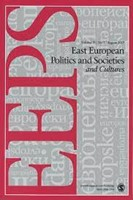
[18 March 2022] Read accepted version of our forthcomming publication by Natalia Jarska and Agata Ignaciuk, "Premarital sex in state-socialist Poland: a generational perspective." East European Politics and Societies: and Cultures.
Abstract: In this article we examine personal narratives on premarital sex by two generations of Polish men and women—one born in the 1950s and 1960s, and their parents’ generation, born in the 1920s and 1930s and coming of age during or after World War II—and place these in dialogue with discourses surrounding young sexuality in state-socialist Poland. Using sociological surveys, popular sexological literature and Catholic marriage preparation material, we contextualize accounts of premarital heterosexual experiences, provided through oral history interviews and contest memoirs, ego documents submitted for autobiographic writing competitions in the 1960s and 1970s. We show there was no clear division between public secular and Catholic approaches to premarital (hetero)sexuality, with both opposing sexual experimentation before and beyond marriage throughout the state-socialist period (1945–1989). However, across the same period, young people’s acceptance of premarital sexual experimentation increased and the importance of a woman remaining a virgin until marriage declined. Our analysis of discourses and experiences reveals the connections and intersections of secular and Catholic realms. While secular experts did not conceptualize premarital sex as a sin, they often mirrored Catholic views by framing their discourse in love, sex, responsibility, and potential risk. Young people negotiated various elements of these teachings in their premarital sexual practices, which, during the final decades of state socialism, were largely normalized, especially when couples were planning to marry.
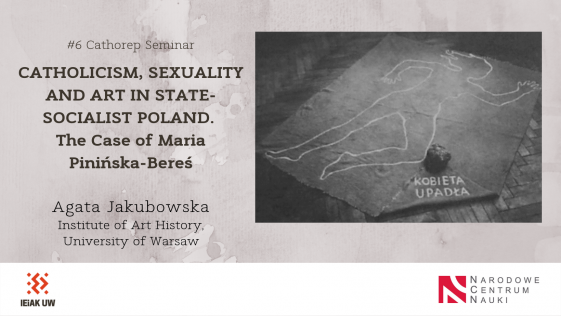
24.02.2022, 03:30 pm CET - Agata Jakubowska, Catholicism, Sexuality and Art in State-Socialist Poland. The Case of Maria Pinińska-Bereś
https://us02web.zoom.us/j/88321852378
Abstract: Analysis of discourses dealing with female sexuality in state-socialist Poland rarely include visual materials (visual culture and artworks). Analysis of female artists’ representations of female sexuality rarely perceive them as elements of then developing discussions on this theme. I want to propose a reflection on what researchers from such fields as anthropology, history, art history and visual culture studies, can offer each other in studies on their mutual subject of interest: women in state-socialist Poland.
I will present fragments of my research on one female avant-garde artist - Cracow-based sculptor Maria Pinińska-Bereś (1931-1999). Some of her artworks created in the 1960s and 1970s dealt with Catholic attitudes towards female sexuality. Only in the 1990s she admitted that the sources of these pieces laid in her personal history, which in a way turned them into intimate confessions. These artworks by Pinińska-Bereś, their reception and self-commentary that the artists added to them can be considered – I want to argue in my presentation – as enriching the image not only of intimate practices, but also of their articulation in the iconosphere of post/socialist Poland.
Agata Jakubowska - graduated in art history at Adam Mickiewicz University in Poznań, where she worked until 2021. Currently employed at the Institute of Art History at the University of Warsaw. Author and editor of numerous publications on women's art, e.g. Multiple Portrait of Alina Szapocznikow’s Oeuvre (in Polish, 2008); Alina Szapocznikow. Awkward Objects (ed., 2011) and Zofia Kulik: Methodology, My Love (ed. 2019); and the co-editor (with Katy Deepwell) of All-Women Art Spaces in Europe in the Long 1970s (2018).
She has just completed a monograph on Maria Pinińska-Bereś under the title Art and Emancipation of Women in Socialist Poland. The Case of Maria Pinińska-Bereś (in Polish, Warsaw University Press, under review). Currently she is conducting a research on transnational history of all-women exhibitions and runs a research seminar Narrating Art and Feminism: Eastern Europe and Latin America (together with prof. Andrea Giunta, Buenos Aires University, www.cah.wnks.uw.edu.pl)
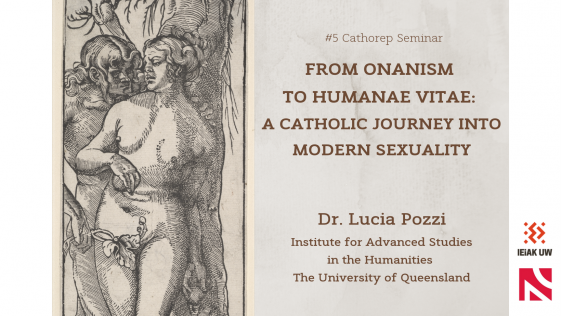
Feb 07, 2020, 10 am CEST, join us for #5 Cathorep online seminar
Lucia Pozzi, From Onanism to Humanae Vitae: a Catholic Journey into Modern Sexuality
Abstract: For centuries, the Catholic church has regulated sexual behaviours. Everyone is prone to think that the Catholic church has always opposed birth control and abortion. This is commonly interpreted as a form of resistance to modernity. However, the Catholic encounter with modern sexuality has a more interesting and complex history. And this history began long before the issue of the encyclical Casti connubii (1930), which was the first papal pronouncement on eugenics, birth control and abortion.
What is really modern in the Catholic various conceptions of sexuality? How did medical understanding affect religious view of sexuality? How did scientific and religious thought interact in the construction of discourse on sexuality? What are the historical roots of Catholic contemporary attitudes towards sexuality?
My hypothesis is that over the nineteenth century a new combination of scientific and political discourses moulded Catholic discourses on sexuality into something new. In particular, a new medical interpretation of sexuality changed the religious way to look at sexual sins.
In this paper I will discuss the meaning of onanism, its origin, and its impact on modern Catholic ideas of contraception and marital sex. I will then focus on sexual purity as a modern religious response to the late nineteenth- and twentieth-century debates on sex education and sex reform.
Lucia Pozzi is a member of the Institute for Advanced Studies in the Humanities (IASH) at the University of Queensland. She has published articles and book chapters on the history of the Catholic encyclical Casti connubii, on Catholic sexual morals, eugenics and birth control. Her research interests include the history of medicine, the Society of Jesus and the history of Fascism. Her recent book (Catholicism and Sexual Knowledge in the Nineteenth and Twentieth Centuries, Palgrave Macmillan, Basingstoke Palgrave Macmillan 2021) investigates how Catholicism modified and adapted itself to scientific modernity, through an exploration of its encounter with nineteenth- and twentieth-century medical discourses.
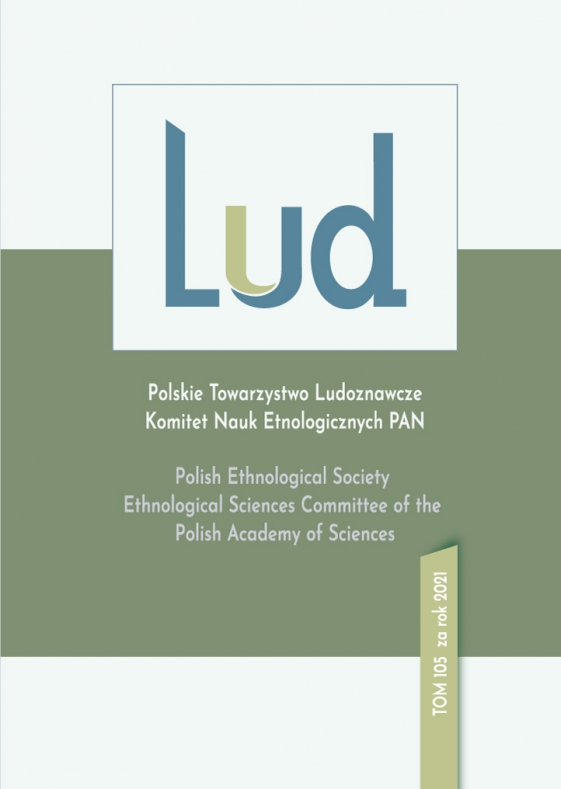
[Dec 22, 2021] New article by our team: Agnieszka Kościańska, Agnieszka Kosiorowska, Natalia Pomian, “A woman should follow her own conscience”: understanding Catholic involvement in demonstrations against the abortion ban in Poland, Lud, 2021, vol. 105, 2021 (open access).
Abstract: In October 2020, a ruling by Poland’s Constitutional Tribunal effectively ending legal abortion incited mass protests across the country. Despite the demonstrations being directed at both the government and the Catholic Church, many devout Catholics joined the protests against the Church’s opposition to family planning being enacted through state-imposed prohibition. Drawing on ongoing archival and ethnographic research, in this paper we address a number of issues relating to Catholicism and abortion: how it is possible that so many Catholics decided to take part in pro-choice marches openly opposing official Catholic teaching on birth control? What were their motivations?
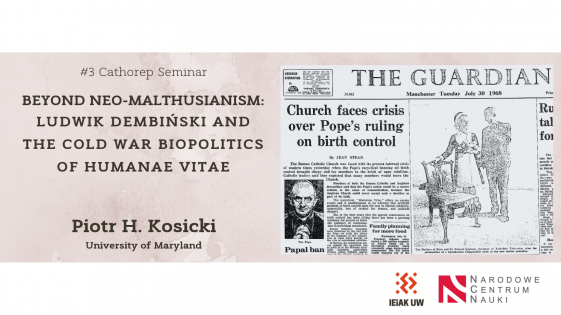
Dec 13, 2021, 3 pm CET, #3 Cathorep Seminar
Piotr H. Kosicki, Beyond Neo-Malthusianism: Ludwik Dembiński and the Cold War Biopolitics of Humanae Vitae
Abstract: In response to the global Catholic aggiornamento that followed the death of Pope Pius XII, extensive cultural and intellectual transfers blossomed between budding milieus of Catholic intellectuals in the Global North and Global South, as well as across the Iron Curtain. This paper takes as a case study the Polish Catholic intellectual Ludwik Dembiński, a law professor from Lublin and co-founder of the Polish Catholic Intelligentsia Club (KIK) movement who in 1967 joined the leadership of the Swiss-based Catholic NGO Pax Romana. In his capacity as secretary general for Pax Romana’s “adult” movement (i.e. for university graduates, as opposed to its youth movement), Dembiński in 1968 found himself moderating and overseeing heated debates about the encyclical Humanae Vitae that threatened to tear apart the fragile global Catholic intellectual community built over the past decade. Developmentalist discourse became inextricably embedded in debates over natality and reproduction, with Catholics from behind the Iron Curtain joining activists from across the Global South to embrace Humanae Vitae and to accuse its Western opponents of neo-Malthusianism and neo-imperialism.
Bio: Piotr H. Kosicki is Associate Professor of History at the University of Maryland. Recipient of a PhD from Princeton, he has published widely on the history of the Catholic Church, on the intellectual entanglements of Poland and France and on the Cold War, including Catholics on the Barricades: Poland, France, and “Revolution,” 1891-1956 (Yale, 2018) and, as editor, Christian Democracy and the Fall of Communism (2019, with M. Gehler and H. Wohnout), Christian Democracy across the Iron Curtain (2018, with S. Łukasiewicz), The Long 1989 (2019, with K. Kunakhovich), and Vatican II behind the Iron Curtain (2016). His essays have appeared in Commonweal, The TLS and the Washington Post.
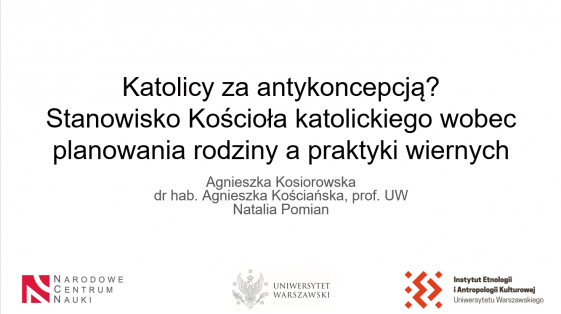
[01.10.2021] Agnieszka Kosiorowska, Agnieszka Kościańska and Natalia Pomian participated in The Sixth International Congress of Religious Studies in Cracow “Belief – Imagination – Knowledge. New Paths of Religious Studies in the 21st Century”. They presented a paper “Do Catholics support contraception? Catholic Church attitude towards family planning and believers’ practices”

[Sept 7-10, 2021] Members of our research team took part in a conference “Faith, Medicine and Religion” organised by The European Association for the History of Medicine and Health at KU Leuven, Belgium. They participated in panel „Catholic Discourses on Reproductive Health in State-Socialist Poland, 1960s-1990s” and presented following papers:
Agata Ignaciuk and Natalia Jarska
Debating premarital sex in Catholic and state-socialist Poland
This paper examines the discourses surrounding youth sexuality in state-socialist and Catholic Poland, particularly the ideas surrounding “virginity”. Secular advice literature and sexological writings published between the late 1950s and the end of Polish communism in 1989 presented ambiguous and non-homogeneous discourses on premarital sex. The “culture of sexuality” promoted by experts tended to be limited to marital relationships: explicit advice on sex was largely directed at married couples or in the framework of “preparation for marriage”. While secular experts did not brand premarital sex as immoral, throughout the 1960s, 1970s and 1980s, they provided a range of medical and social arguments against the practice, at times based on gender hierarchies. Analogically, throughout the state-socialist period, both popular books aimed at the Catholic public and available in libraries, and unpublished scripts for the clergy and lay Catholics delivering “preparation for marriage” training at various levels, welded sex with marriage and forbade premarital sexual activity. The anticipated negative consequences of premarital sex were, again, steadfastly gendered: girls and women would suffer most as they were not only deemed responsible for controlling male sexual urges and advances, but also sexual violence. We concluded that overlaps and mutual borrowings existed in Catholic and secular approaches to premarital sexuality. While secular experts were unlikely to conceptualize premarital sex as a sin, they often mirrored Catholic views by framing the discourse in love, sex, responsibility and social danger.
Natalia Pomian
Faith and lack of offspring: infertility in the Catholic press in Poland (1956-1989)
With the end of the Stalinist era, the traditionally defined family and the Catholic vision of marriage regained prominence in Poland. Catholic premarital education, institutionalised in Poland from the late 1960s onward, prepared future spouses to parenthood. But what happened with the couples who had difficulties to conceive? In 1980s, a reported 10% of marriages were struggling with fertility problems, and in mid-1980s 3,4% of couples married for 10 or more years remained childless. Even though the Catechism of the Catholic Church highlights that childless couples can be fruitful through love, openness to others and sacrifice, the social and political pressure to have children in Poland remained enormous. This paper analyses the debates about infertility and childlessness in Poland through the pages of "Tygodnik Powszechny" - a Catholic weekly magazine focusing on social and cultural issues. I am particularly interested in underscoring the proposed solutions to the problem of infertility/childlessness, such as adoption and medical treatment of infertility (including insemination and in vitro fertilization), and the hierarchies established between these solutions. As sociological research showed, only 16% of infertile women were considering adoption, the rest chose long-term treatment or, as a last resort, 8% would choose artificial insemination. Looking at early discussion on infertility in a popular Catholic medium enables the understanding of the controversies attached to the contemporary Catholic approach to this problem and the social context of creating methods of therapy that suits Catholic ethics (e.g. naprotechnology).
Agnieszka Kosiorowska
Fair, natural, and reasonable. Sexuality and reproduction in the discourse of a religious organisation of Polish migrants in France
“A child in a marriage is its most honourable goal, and the decisions regarding having offspring are up to the parents. The Church only wants these decisions to be fair, in accordance with the laws of Nature, and reasonable” (1980). These words come from a 1980 issue of a newspaper published under the patronage of the Polish Catholic Mission (PCM) in France. The PCMs exist in twenty-eight different countries of the world, and exercise pastoral care over Polish migrants living in those countries. They play an important role in the lives of migrant communities, helping migrants with practical problems of everyday life and serving to sustain community bonds and cultural identity. This paper focuses on ways in which the PCM in France attempted to shape gendered health practices of migrants, in particular those related to reproductive health. I focus on the 1980s and 1990s, a time when the PCM in France assisted a large inflow of Polish economic migrants who left Poland due to the economic crisis during the last decade of state socialism. I analyse the PCM’s newspaper “Głos Katolicki” (1980-1999) and focus on specific advice concerning reproductive health and sexuality, and behaviours and practices constructed as (un)healthy for men and for women. My hypothesis is that Polish Catholic Mission in France tried to manage and influence migrants’ sexual and reproductive practices, considering that Polish people’s practices in this matter should be different to those thought to be a norm in the French society.
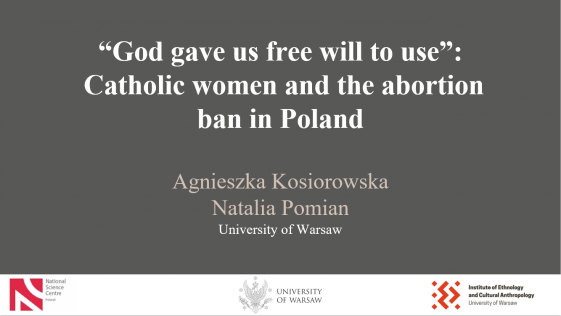
[August 30-Sept 3, 2021] Agnieszka Kosiorowska and Natalia Pomian participated in the 18th Annual Conference of the European Association for the Study of Religions Resilient Religion, which was held at the University of Pisa. They presented a paper '“God Gave us Free Will to Use”: Catholic Women and the Abortion Ban in Poland'.
Abstract: The commonly named abortion compromise that had existed in Poland since 1993, allowed the procedure to be performed in only three situations: when pregnancy was the result of a criminal act, when a woman’s health was endangered by continuing the pregnancy, and when the foetus was seriously and irreversibly impaired. However, on October 22 of last year the Polish Constitutional Tribunal adjudged the lattermost exception to be unconstitutional. Despite the mass demonstrations against this verdict denouncing both the government and the Catholic Church, many devout Catholics joined the protests. Drawing on ongoing archival and ethnographic research, we address a number of issues relating to Catholicism and abortion. Why have so many Catholics decided to participate in marches openly opposing official Catholic teaching? What were their motivations? And – finally – what are the genealogies of the concepts underpinning these motivations? To answer these questions, we explore the opinions relating to abortion of three generations of Polish Catholics. We present strategies they have employed to negotiate with the Church’s stance on abortion, including emphasising both the importance of acting on one’s own conscience and the subjective situations of individual women’s lives, as well as insisting that abortion law is not a matter in which the Church should intervene. Finally, we discuss the notion of a “mature rebellion” against the Church, a concept that appears in the accounts of several Catholic protesters.
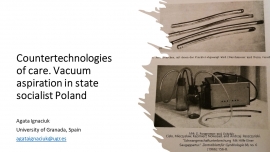
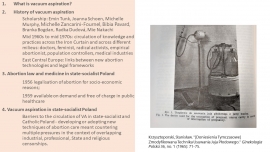
[July 12, 2021] Agata Ignaciuk and Sylwia Kuźma-Markowska took part in a virtual workshop “Tracing social change: family planning since the 19th century”, organised by the Herder Institute for Historical Research on East Central Europe. Agata Ignaciuk presented a paper “Countertechnoogies of care. Vacuum aspiration in state-socialist Poland”. Kuźma-Markowska’s talk was entitled “Conflicts and interdependencies. Family planning narratives and activism in interwar Poland”. Both Cathorep members enjoyed participating in the new network on family planning history.
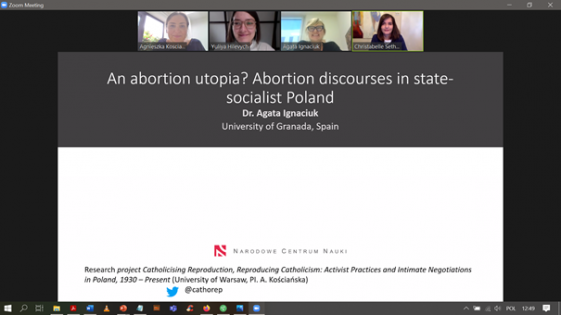
[June 25, 2021] Agata Ignaciuk and Agnieszka Kościańska presented our research during the 27th International Conference of Europeanists (June 21-25, 2021, panel Polish Abortion Utopias and Dystopias)
Agata Ignaciuk, An Abortion Utopia? Abortion Discourses in State-Socialist Poland
In October 2020, the Polish Constitutional Court, the country’s highest judicial body, declared abortion due to foetal malformation unconstitutional. The decision is a culmination of decades of the escalating criminalization of abortion which began in the early 1990s, during the country’s transition to democracy. The 1993 abortion law reform dismantled the state-socialist regulation according to which abortion was available practically on demand. In light of the near-total abortion ban on the horizon, the state-socialist abortion scene seems like a paradise. Nevertheless, this paper problematizes such an assumption by examining public representations and intimate narratives of abortion in Poland from the late 1950s to late 1980s. I argue that in state-socialist Poland three abortion discourses intersected. In the expert discourse, abortion was represented as a dangerous surgery and women who terminated pregnancies as careless and irresponsible. In the Catholic discourse, which fiercely opposed legal abortion, termination was a sin and those who underwent it were criminals, victims or both. In the narratives of women who counted on wide access to abortion, a normality discourse emerged. Those who had abortion rationalized it terms of personal choices largely uncontaminated by medical or religious stigmatization. I conclude that when the democratic transition began in 1989, the intersection of these three discourses produced a framing of abortion incompatible with a reproductive rights discourse. It was not until the mass social mobilizations linked to the “Black Protests” (2016) when abortion rights in Poland became a shared utopia.
Agnieszka Kościańska, A Utopia for the Unborn: Polish Catholic Concepts of Gender Equality in the Family
“Liberating the man from the limitations of his nature might only happen through elevating and embracing female qualities”, wrote Wlodzimierz Fijalkowski, a Polish Catholic doctor, in 1984. He and other Catholic authors argued that men should be involved in family planning and child care. They also supported women’s work outside the house as an important space for female self-development and showed that gender equality was one of the keys to marital harmony. This attitude contrasted with the approach of many secular experts under late socialism: marriage advice specialists presented gender equality as an obstacle to a successful sex life; the socialist state advocated for women’s involvement in formal employment, but hardly ever promoted any re-definition of gender roles within the household.
I examine the development of Catholic concepts of gender equality under late socialism, post-socialism and currently to argue that they served multiple purposes. Some progressive Catholics envision the family based on equity, but for others these ideas have been closely related to Catholic involvement in the anti-abortion movement that resulted in an almost total ban on abortion in Poland in 2020. Within this framework, the Catholic idea of gender equality in the family is limited by the welfare of the unborn: women should self-develop to become better mothers but lose their rights once they become pregnant; men are needed in the household to ensure that women do not consider abortion. In effect, the Catholic utopia of gender equality in the family is in fact a utopia for the unborn.
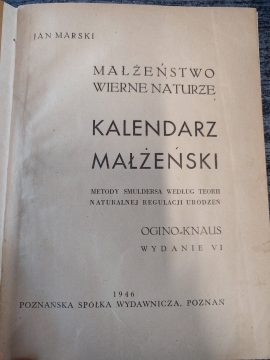
[JUne 4, 2021] Sylwia Kuźma-Markowska and Natalia Jarska presented a paper entitled Love and Calendar: The Catholic Church and Family Planning in Poland (1930-1956/57) at the conference "MOTHER, FATHER, CHILD, HEALTH – THE HISTORY OF REPRODUCTION. The 18th Conference of the German-Polish Society for the History of Medicine", co-organized by the Center of Historical Studies of the Polish Academy of Sciences in Berlin. The paper examines Catholic advice literature published during two time periods usually separately analyzed in Polish historiography. Focusing on four themes: family size, the aims of marriage, family planning and gender norms, the paper argues about the continuity of Catholic teaching on marriage and birth control between the pre-war and post-war periods.
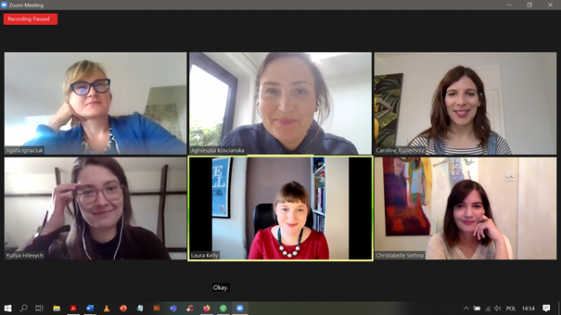
[May 13, 2021] Agata Ignaciuk and Agnieszka Kościańska participated in the 94th Annual Meeting of the American Association for the History of Medicine, May 12-16, 2021
Panel: Reproductive Health Archives in Pandemic Time
Moderator: Agata Ignaciuk, University of Granada
Speakers: Yuliya Hilevych, University of Lincoln, University of Cambridge; Caroline Rusterholz, University of Cambridge Laura Kelly, University of Strathclyde; Christabelle Sethna, University of Ottawa; Agnieszka Kościańska, University of Warsaw
Abstract: Reproductive health, simultaneously intimate and public, personal and political, has emerged as one of the central themes in social history of medicine. In times of the COVID-19 pandemic, it becomes particularly salient that rights linked to reproduction are unconsolidated rights, prone to implicit and explicit vulnerability in contexts of crises. In Europe, examples of such challenges to reproductive rights have ranged from banning partners from accompanying women during hospital childbirth (as has happened in Poland and parts of Spain during the confinement months in spring 2020) to the impact of closing borders on the ability of women living in countries with restrictive abortion jurisdictions or limited abortion access to seek terminations abroad. The COVID-19 pandemic has not only affected the experiences of reproductive health, but also the possibilities of scholarly enquiry into its history. The prospect of accessing or creating the reproductive health archive, in which institutional sources are often secondary to the personal ones, and where personal narratives play a prominent role in illuminating the intimate and the public histories of reproductive health, has been transformed. This session brings together historians, anthropologists and sociologists working on different aspects of the history of reproductive health in the 20th century, including social and cultural histories of adoption, infertility, family planning, queer and teen sexuality, and abortion travel in a number of local contexts (UK, Ireland, the Netherlands, Poland, Ireland, Canada) and transnationally. The aim of the session is two-fold. First, we will debate around the broad concept of the reproductive health archive: what constitutes it? How is it created, preserved, exposed, analysed? Second, we will reflect on ways the pandemic has affected the scholarly practices around the reproductive health archive: how does the present health crises affect the historical pursuing, analysis and interpretation of past reproductive health narratives and what lessons can we learn from the current situation?
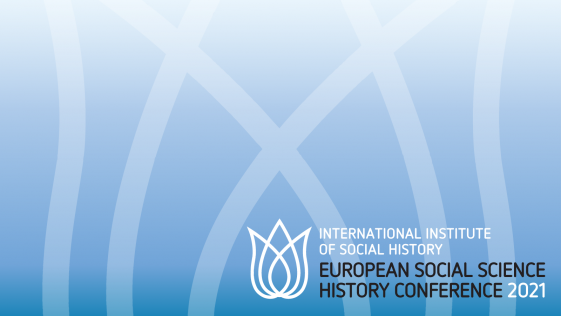
[March 27, 2021] Our team at the virtual ESSHC. Agnieszka Kościańska moderated the panel Activism around Sexual and Reproductive Health Counselling across Europe: Forms of Resistance and (De-)medicalisation from Below within which Agata Ignaciuk presented her paper, entitled “Do not use - Love”. Sexual and Contraceptive Expertise and Anti-abortion Activism in Catholic Preparation for Marriage in Poland during Late Socialism .

[March 21, 2021] Agnieszka Kościańska talks about changes in Catholic approaches to abortion in Poland in The Fourcast: The women trapped and traumatised by Poland’s near-total abortion ban. Listen
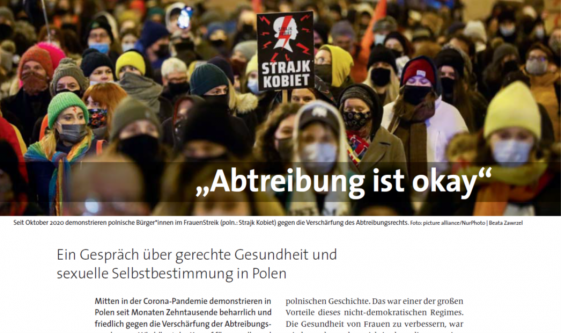
[Feb, 24, 2021] Agata Ignaciuk and Agnieszka Kościańska discuss our research in Dr. med. Mabuse
"Im sozialistischen Polen wurde eine Basis-Gesundheitsversorgung für die breite Bevölkerung zugänglich - eine grundlegende Neuerung in der polnischen Geschichte. Das war einer der großen Vorteile dieses nicht-demokratischen Regimes. Die Gesundheit von Frauen zu verbessern, war wiederum besonders wichtig, denn dies garantierte die Reproduktion der gesunden Bevölkerung. Der Schutz der Gesundheit von Frauen war auch ein zentrales Argument bei der Legalisierung der Abtreibung 1956. Denn Frauen, die illegale, unsichere Abtreibungen in Anspruch nehmen mussten, erkrankten oder starben viel häufiger."
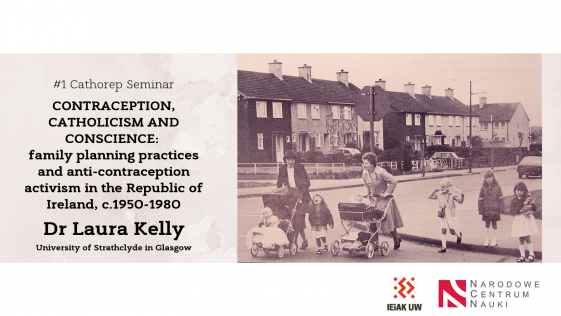
[Feb 1, 2021] Cathorep seminar
Dr Laura Kelly, Contraception, Catholicism and Conscience: family planning practices and anti-contraception activism in the Republic of Ireland, c.1950-1980
Contraception was illegal in the Republic of Ireland from 1935 to 1979 and artificial contraceptives were difficult to access before legalisation. The contraceptive pill was available as a ‘cycle regulator’ from 1963, but access depended on a sympathetic doctor.
With the establishment of family planning clinics in urban centres such as Dublin, Galway, Limerick and Cork from the 1970s, it became possible for some middle-class, urban-based men and women to access contraception. However, the majority of men and women struggled to access contraceptives. While recent valuable studies have illuminated the role of the
Catholic Church hierarchy, Irish government and the medical profession in debates surrounding contraception in Ireland in the twentieth century, the experiences of ‘ordinary’ men and women have been severely neglected. This paper seeks to address this significant gap. The first part of the paper will draw primarily on new oral history interviews with over 100 Irish men and women born before 1955, exploring the birth control practices in Ireland prior to the legalisation of contraception in
1979. In particular, the paper will highlight the impact of Church teachings on individuals’ knowledge and understanding of sex and reproduction as well as decision-making processes in relation to family planning. Ultimately, the paper will emphasise individuals’ agency and resilience in the face of legal and religious restrictions and suggest that couples planning their
families in the wake of Humanae Vitae were beginning to follow their own consciences in relation to birth control. The second part of the paper will briefly explore the role of anti-contraception campaigners and activists in debates around the legalisation of contraception in Ireland, illustrating these groups’ concern that the legalisation of contraception would lead to
the introduction of abortion.
Bio: Dr Laura Kelly is senior lecturer at the University of Strathclyde in Glasgow. She has published two monographs on the history of women in medicine and on medical education and student culture in Ireland respectively. Her current research project ‘Contraception and Modern Ireland, c.1922-92’ is funded by a Wellcome Trust research fellowship and forms the
basis of a forthcoming monograph with Cambridge University Press.
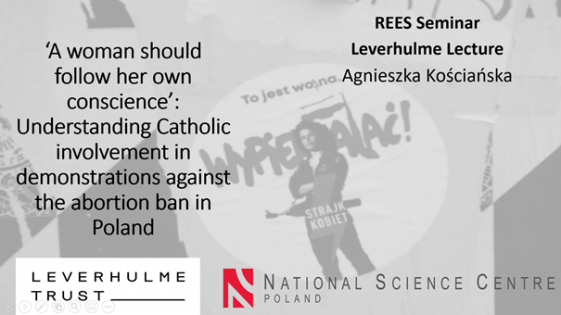
[Jan 21, 2021] Agnieszka Koscianska presented our research at the Oxford School of Global and Area Studies.
‘A woman should follow her own conscience’: Understanding Catholic involvement in demonstrations against the abortion ban in Poland
In October 2020, a ruling by Poland’s Constitutional Tribunal effectively ending legal abortion incited massive protests across the country. Despite the demonstrations being directed at both the government and the Catholic Church, many devout Catholics joined the protests against Church opposition to family planning being enacted through state-imposed prohibition.
Drawing on ongoing archival and ethnographic research, in this presentation I address a number of issues relating to Catholicism and abortion: how it is possible that so many Catholics decided to take part in pro-choice marches openly opposing official Catholic teaching on birth control? What were their motivations? And – finally – what are the genealogies of the concepts underpinning these motivations?
 [Dec 21, 2020] Referring to the research, our team members have offered comments on Catholicism and reproductive rights in Poland, addressed to the wider international audience. Agnieszka Kościańska commented for La Repubblica and Financial Times, talking about the changes in the Catholic Church in Poland; Agata Ignaciuk co-wrote an article on the longer history of abortion regulations and access that was published in the Agenda Pública, blog of El País.
[Dec 21, 2020] Referring to the research, our team members have offered comments on Catholicism and reproductive rights in Poland, addressed to the wider international audience. Agnieszka Kościańska commented for La Repubblica and Financial Times, talking about the changes in the Catholic Church in Poland; Agata Ignaciuk co-wrote an article on the longer history of abortion regulations and access that was published in the Agenda Pública, blog of El País.
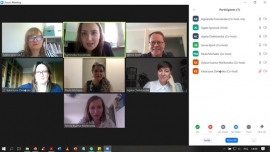
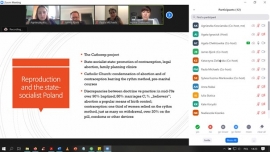
[Nov 15, 2020] Our team at the 2020 Slavic, East European, and Eurasian Studies virtual convention.
Re-thinking Polish Catholic Approaches to Gender, Sexuality and Reproduction: Local and Transnational Perspectives, Past and Present
In the present virulent debates about the alleged threats of “gender/LGTBQ ideologies” and sex education in Poland, the Catholic Church has taken a key role. The longstanding ultra-conservatism of the Polish Catholic hierarchy in the realms of gender and reproduction, both on a local level and transnationally through the papacy of John Paul II, has obscured the diversity of voices and practices linked to Catholicizing sexuality, gender and reproduction within the broader Catholic community in Poland. This panel nuances and historicizes these current debates by examining Polish Catholic engagements with reproduction and gender practices from the second half of the twentieth century to the present. Rather than focusing on the norms produced and interpreted by the hierarchy, contributors to this panel bring historical, anthropological and sociological perspectives to place Catholic activist and intimate practices and negotiations of sexuality, femininity and masculinity at centre stage. Have Catholic intellectuals shaped alternative interpretations of sexual ethics? Have lay Catholics rebelled against the norms regarding ‘artificial’ contraception and abortion? In what ways has the transnationalisation of militant anti-abortion strategies fuelled new forms of local anti-abortion activism, carried out in defiance of the socialist State? How do transnational contexts, such as migration, influence perceptions and practices of gender in religious institutions? Through addressing these questions, this panel contributes to deconstructing the image of Polish Catholic sexual ethics and perceptions of gender as conservative and impervious to change while also placing current conflicts about gender and reproduction in the transnational context.
Our papers:
Agnieszka Kościańska, “In Search of a New Marriage: Progressive Catholic Activism of the 1960s”
Agata Ignaciuk and Agata Chełstowska, "Catholic Intimacies: Catholics Negotiating Birth Control in State-socialist Poland (1950s-1980s)”
Sylwia Kuźma-Markowska, “Transnational Dimensions of Catholic Anti-abortion Activism in the 1980s and early 1990s Poland”
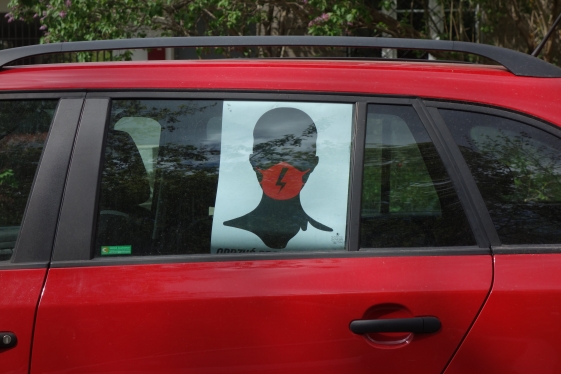
[Oct. 25, 2020] Agata Ignaciuk co-wrote an article on the longer history of abortion regulations and access that was published in the "Agenda Pública” blog of one of the most important Spanish daily newspapers, El País.
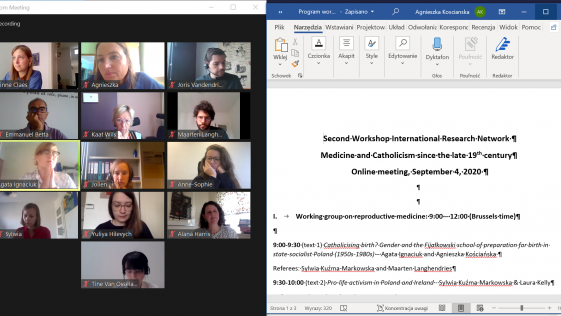
[Sept. 4, 2020] Agata Ignaciuk, Agnieszka Kościańska and Sylwia Kuźma-Markowska participated in the Second Workshop of the International Research Network Medicine and Catholicism since the late 19th century. Agata Ignaciuk and Agnieszka Kościańska presented their paper, entitled “Re-gendering childbirth: Catholicism and medical activism around preparation for birth in state-socialist and early democratic Poland (1950s-1990s)”, and Sylwia Kuźma-Markowska, with Laura Kelly from the University of Strathclyde, the paper “Pro-life activism in Poland and Ireland”.
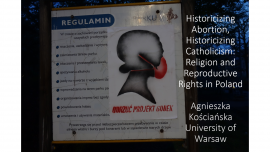
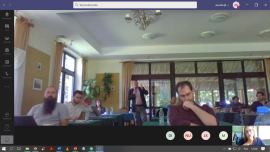
[Sept. 3, 2020] Agnieszka Kościańska presented our project at the Conference of the Visegrád Anthropologists’ Network (V4 Net): Locating religion and nonreligion in Eastern/Central Europe, Konstancin-Jeziorna 02-05.09.2020.
Abstract: Historicizing Abortion, Historicizing Catholicism: Religion and Reproductive Rights in Poland
Gender and sexuality related issues, and abortion in particular, constitute the most heated debates and social conflicts in today’s Poland, mobilizing both religious and no-religious actors. The Church and conservative Catholic lay activists present reproductive rights as a threat to the nation and an attack on the unborn. Feminists, along with other liberal actors, consider reproductive rights as basic human rights and portray the Church as a major anti-democratic, anti-emancipatory and anti-women force. In this paper I draw on archival and ethnographic research into Catholic and secular understandings of sexuality, gender and reproduction, to analyze historical changes in abortion debates and practices in Poland. By historicizing both abortion and Catholicism, and exploring the discrepancy between Catholic Church teachings on birth control and actual family planning practices in Poland, I seek to understand what social, cultural, and political processes mobilize religious and non-religious actors to clash over abortion, or, using the theoretical framework of “virtual religion”, what conditions activate abortion conflicts, and are these related to actors’ life trajectories and birth control experiences, or to broader processes of defining the nation and its ideologies?
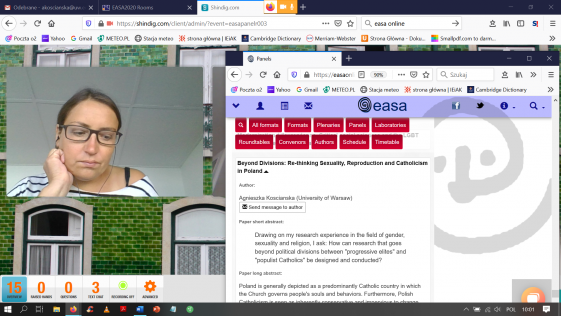
[July 23, 2020] Agnieszka Kościańska presented our project at the European Association of Social Anthropologists online conference during the Critical social sciences in Eastern and Central Europe: No future? roundtable.
Abstract: Beyond Divisions: Re-thinking Sexuality, Reproduction and Catholicism in Poland
Poland is generally depicted as a predominantly Catholic country in which the Church governs people's souls and behaviors. Furthermore, Polish Catholicism is seen as inherently conservative and impervious to change. As this image influences both public debate and academic research, any discussion about the Catholic Church in regard to sexuality and reproduction in Poland is limited to vehement statements by the "progressive elites" ("the Church is solely responsible for the lack of sexual and reproduction rights") and "populist Catholics" ("feminists and LGBT activists pose a threat to the Polish nation"). In this roundtable intervention, I endeavor to deconstruct this image and search for other ways of approaching religion in Poland. Drawing on my research experience in the field of gender, sexuality and religion, including a new project entitled "Catholicising Reproduction, Reproducing Catholicism: Activist Practices and Intimate Negotiations in Poland, 1930-Present", I ask: How can research that goes beyond political divisions between "progressive elites" and "populist Catholics" and approaches the issues of Catholicism and sexuality in a more nuanced fashion be designed and conducted? Could anthropology - no longer an officially accredited academic discipline in Poland - contribute to crafting new ways of talking about sexuality and reproduction in the country? And, how can anthropologists engage politically to re-shape oversimplistic imaginaries and extend public debate beyond the entrenched political divisions?
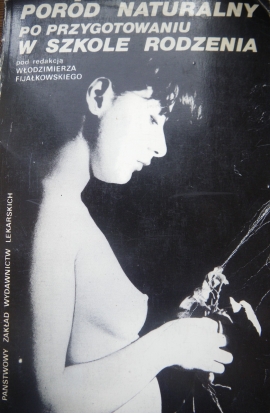
Found in the archive (July 13, 2020):
In 1967, Polish state medical publisher PZWL published Włodzimierz Fijałkowski’s Birthing school based on psycho-pedagogy. The book, which was re-edited several times in the forthcoming decades, contained the gynaecologist’s birth preparation programme, whose central idea was re-educating pregnant women, so they perceived labour as “highest expression of motherhood”. By preparing for birth, women learned how to protect their child during labour. Fijałkowski, in the 1960s linked to the II Clinic of Obstetrics and Gynaecology of Lodz Medical School, continued to develop his preparation for birth method during the 1970s and 1980s, consolidating his authority in the field. Amongst new elements to his programme he began to make explicit in following decades in books such as Natural birth after birth school preparation (1981, pictured), the key one was to educate the expected parents to accept (and preach) that life began at “conception”.
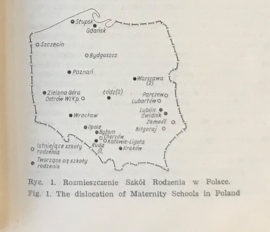
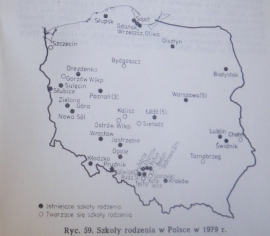
Found in the archive (May 21, 2020): In the second half of the 1970s, “birth schools” [szkoły rodzenia] offering birth preparation courses mushroomed in Poland. These maps illustrate this process, depicting existing schools (white circles) and those that were expected to open soon (black circles). The 1975 map was published in Ginekologia Polska, the main Polish professional journal for gynaecology and obstetrics, in an article authored by Włodzimierz Fijałkowski, the main proponent of psychoprophylaxis and preparation for birth in Poland. The 1979 map was published in a book entitled Natural birth after birth school preparation, published in 1981 and edited by Fijałkowski.
(1.05.2020): The latest issue of Medical History journal features a special issue on transnational history of Catholicism and contraception, guest edited by Laura Kelly and Agata Ignaciuk. Click to read the (Open Access) Introduction.
Found in the archive (April 20, 2020): In reply to the Encyclical Humanae Vitae, a widely read journal, Prawo i Życie (Law and Life), republished a comic cartoon from Die Frankfurter Allgemeine Zeitung. Galileo offers consolation over the pill: “Don’t worry, in my case 350 years ago the Vatican was wrong too”.
March 21, 2020: Libraries are closed, but we are working. We got some books online. We are analyzing works of Włodzimierz Fijałkowski, who was a Catholic doctor and a pioneer of promoting fathers’ engagement in childbirth.
Found in the archive (Feb 21, 2020): Editors of The Bond, a progressive Catholic magazine, presented a special issue on sexuality and Catholicism in 1962. Among contributors: Anna Morawska (one of the most important figures in the Catholic intelligentsia of the time who reported from the Second Vatical Council), Mikołaj Kozakiewicz (the president of the Polish Planned Parenthood Association), Wanda Półtawska (a conservative Catholic psychiatrist and Karol Wojtyła’s friend) and Andrzej Wielowieyski (the president of the Catholic Intelligentsia Club, an important space for anti-communist opposition).
Agnieszka Kościańska participated in the international symposium Sex, science, and censorship in the 19th and 20th centuries (17-18 February 2020), co-organised by Agata Ignaciuk at the University of Granada, Spain. She presented a paper entitled “It will cause an official protest from the Episcopate”: Sexological Self-Censoring between the Communist State and the Catholic Church.
We are looking for student researchers. More info in Polish.
